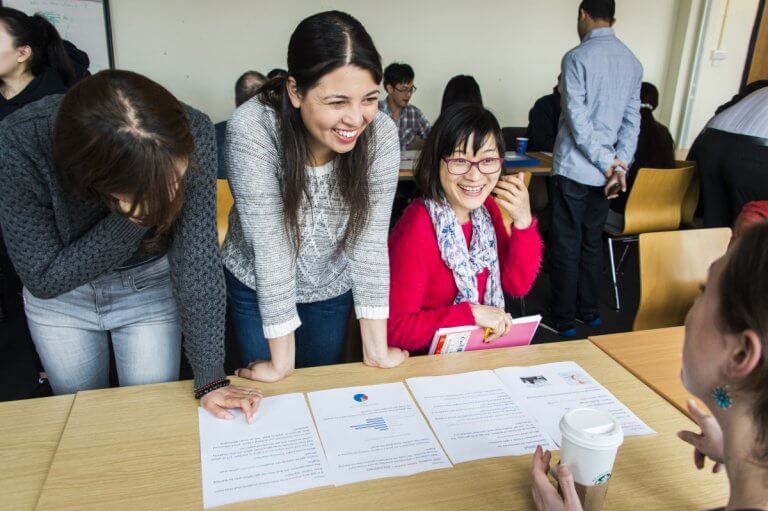
Education in the 21st century presents a unique set of challenges and opportunities. Learning outcomes and environments are changing – in some cases, rapidly. In a more digitally-enabled, complex and fast-changing world, the fundamental question is: how do we educate the future generation to reach their full potential?
The world has made remarkable progress in education. Between 2000 and 2015, the number of out-of-school, primary-age children fell from 100 million to 61 million. Back in 1970, girls spent an average of 6.7 years in total in school. Today, it tops 12 years. At universities, women are outnumbering men. These achievements, however, do not mean there isn’t more to do. We must achieve universal access to education, granting everyone equal opportunities to learn, regardless of their social class, gender, ethnicity, physical or mental disabilities.
On 25 September 2015, the United Nations sought to answer this issue and the bigger question on how to redirect humanity towards a sustainable path. The result is the ambitious 2030 Agenda for Sustainable Development, which identifies 17 vital goals. Goal 4 is “Quality Education – Ensure inclusive and equitable quality education and promote lifelong learning opportunities for all” – cementing education’s crucial role in this project.

Source: University of Manchester – School of Environment, Education and Development
“A fundamental change is needed in the way we think about education’s role in global development, because it has a catalytic impact on the well-being of individuals and the future of our planet…Now, more than ever, education has a responsibility to be in gear with 21st century challenges and aspirations, and foster the right types of values and skills that will lead to sustainable and inclusive growth, and peaceful living together,” said Irina Bokova, Director-General of UNESCO.
Individuals that will lead this change – and our universities – have the capacity to instil the knowledge, skills, values and attitudes that empower them to become the next generation of education leaders. The University of Manchester is one of them. With a commitment to social justice and the enabling of evidence-informed educational change, the Manchester Institute of Education is a research powerhouse. Its international expertise crosses diverse fields, including critical pedagogies and maths education, educational policy and leadership, equality, disadvantage and poverty, as well as special educational and additional needs.
It has won a government project to deliver a £50 million three-year programme to raise educational standards across the city’s schools, after it proved the success of its research to improve teaching and learning in a range of settings. Its research on effective intervention for SEN learners, commissioned by the National Council for Special Education, Ireland, now informs new policy guidance to help schools adopt evidence-based and effective interventions.

Source: University of Manchester – School of Environment, Education and Development
These feats explain the Russell Group university’s achievements on many fronts: 2nd out of 76 UK universities in the national Research Excellence Framework exercise; 34th in the world according to QS World University Rankings 2019; and over £340 million of annual external research funding.
Duan Sun, an MA in Educational Leadership student at Manchester, gets to see how this cutting-edge research translates into teaching. Learning alongside classmates who had working experience gave her a window into education theory and policies from all over the world. Teachers here employ different teaching styles in the classroom, ensuring many opportunities for classroom discussion, a strategy Duan says helped students learn more and understand better.
“My time at Manchester has fostered my capability for learning. I can understand not only what I want and need to learn, but also how to learn,” she explains.
Other taught postgraduate programmes at Manchester include the MA in Education (International) and MA in Digital Technologies, Communication and Education. The former offers a unique combination of policy and practice-based perspectives on education, taught by outstanding, world-leading researchers who focus on the realities of professional practice through the social sciences. The latter is an award-winning course that uses digital technologies, the broadcast media and/or communications techniques to enhance practice, research and the professional and academic development of educators in technology and information-rich environments.

Source: University of Manchester – School of Environment, Education and Development
Students take up postgraduate courses in education for multiple reasons, but all attend for career preparation. For Ola Demkowicz, it’s to make a difference. Demkowicz first joined MIE for her Master’s before continuing with her PhD. Her main focus is on child and adolescent mental health. She’s the co-founder and co-editor of the Building Evidence into Education (MIE BEE) project and blog, as well as a member of HeadStart – a programme to improve resilience and emotional well-being in 10-16 year olds.
“It’s often said that investing knowledge and making change in this area is important because it’s economically beneficial in the long run, but for me and many of the people here in MIE this is seen as simply an ethical responsibility to help figure out how we can support children and young people who are at risk of, or who have, mental health difficulties.”
“I’d really like to be able to produce and contribute to research that is impactful and makes a meaningful difference for people,” she explained.
Applications for Master’s courses at the University open in October 2019. Due to the popularity of the postgraduate Education courses, early application is strongly advised.
Follow the School of Environment, Education and Development on Facebook and YouTube
To find out about the Manchester Institute of Education click here
Liked this? Then you’ll love these…
Here’s how technology is shaping the future of education
University of the West of Scotland: A powerhouse for graduate studies in education







